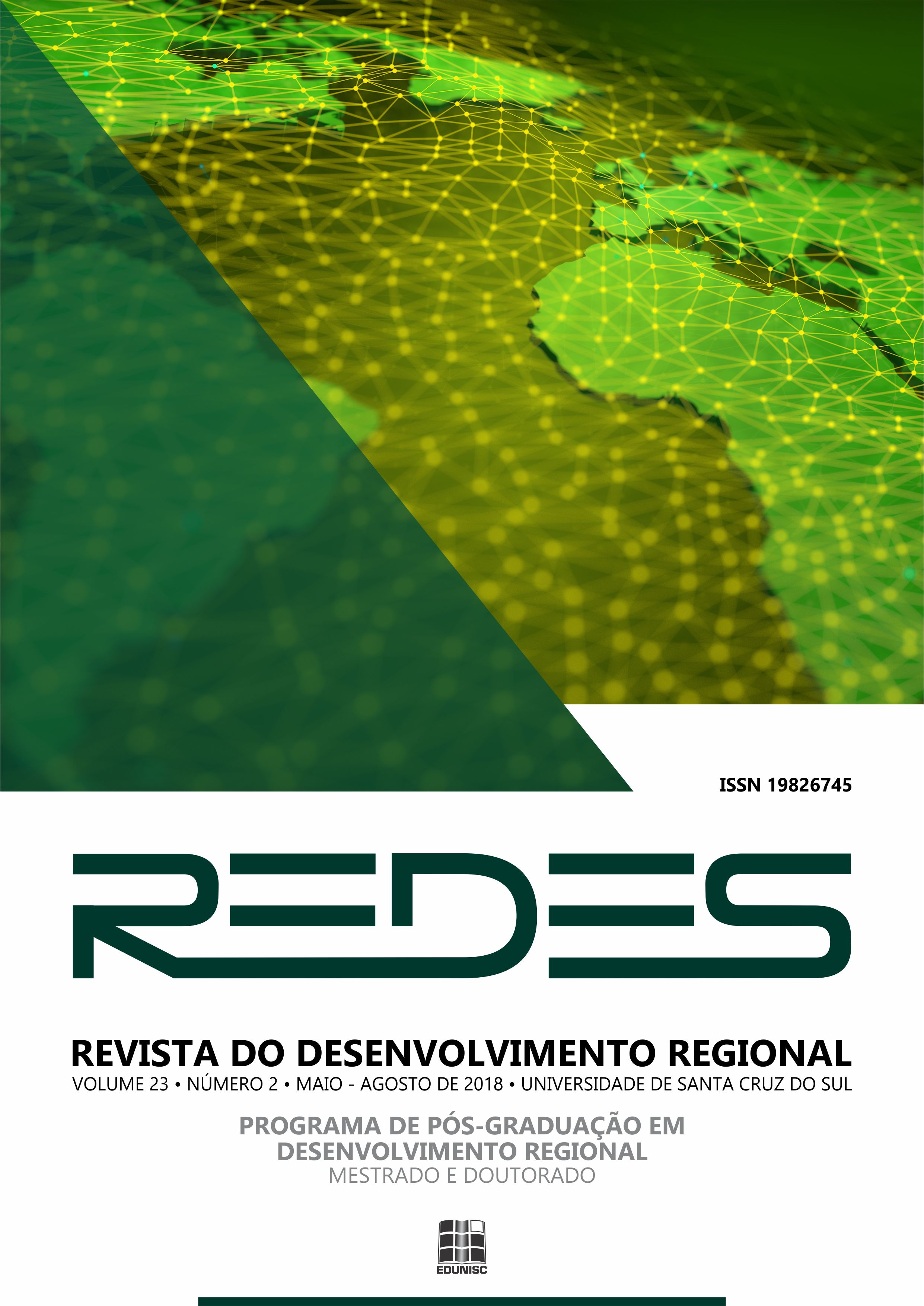Spillovers Space in educational development of the municipalities of the Brazilian Classical Amazon
DOI:
https://doi.org/10.17058/redes.v23i2.6527Keywords:
Educational development. Spatial spillovers. Brazilian Classical Amazon.Abstract
The educational public policies applied in the Brazilian Classical Amazon allowed changes in the cities of the region in general. Thus, this study aimed to verify the existence of educational spillovers in the municipalities of the Brazilian Classical Amazon. Traced aims at identifying spatial patterns of educational development among municipalities; b) detecting the existence of spatial relationship between socioeconomic variables and the growth of educational level and; c) show the direct and indirect effects of socioeconomic variables on the growth of the educational level of the municipalities of northern Brazil. For this, it was used the methodology of exploratory analysis of spatial data and estimation of spatial models, where the poverty rate, illiteracy rate and child labor rates of municipalities have a direct impact, but in a negative way in the development the cities themselves, as well as those overflow effects to neighboring cities, confirming the presence of educational spillovers and the need to think of public educational policies by region, aiming to reduce poverty, child labor and the promotion of education to the illiterate.Downloads
Downloads
Published
2018-05-15
How to Cite
Lobão, M. S. P., & Silva, R. G. da. (2018). Spillovers Space in educational development of the municipalities of the Brazilian Classical Amazon. Redes , 23(2), 290-315. https://doi.org/10.17058/redes.v23i2.6527
Issue
Section
Redes de Cooperação, Arranjos Produtivos e Desenvolvimento Regional



